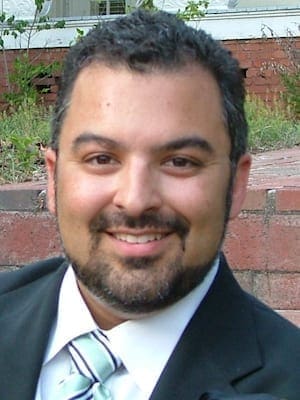With a new Congress taking office, political speeches becoming even more heated, and a 2016 election season already underway, the celebration of Martin Luther King Jr. this weekend should give Christians pause as to their place in modern society.
King is one of my heroes of the faith. For me, his heroism resulted from an ability to stand up against the tidal wave of public opinion and divisive rhetoric in order to uphold the values and convictions he held so dear.
During King’s day, there were several major impediments to furthering the goals of the civil rights movement.
One originated from local and national policies that upheld a “separate but equal” status quo.
Another was the subtle yet loud voice of public opinion opposing greater equality for minorities in society.
Public opinion, usually expressed in opinion polls, is a necessity in politics as a measure of public sentiment.
However, what the civil rights era proved was that public opinion, especially of the majority, does not necessarily reflect a biblical worldview.
Politicians and pundits rely heavily on public opinion to shape national debates, and sometimes public opinion can change depending on the questions asked.
For instance, a 2013 CNBC poll found that Americans were more likely to respond that they opposed the Affordable Care Act when the term “Obamacare” was used.
When King faced a majority opinion in opposition to the civil rights cause in the mid-1960s, he noted on more than one occasion that Christians rarely walk to the beat of the populist drum. Nor are they to be fooled by rhetorical “loop-de-loops.”
One of King’s most moving sermons, “Transformed Nonconformist,” claimed that Christians are citizens of two worlds but ultimately answer to the heavenly realm.
He said that conformity to public opinion could sometimes lead Christians away from Christ.
“We are called to be people of conviction, not conformity; of moral nobility, not social respectability,” he said. “We are commanded to live differently and according to a higher loyalty.”
For King, conformity to public opinion was simply another form of slavery.
“Any Christian who blindly accepts the opinions of the majority and in fear and timidity follows a path of expediency and social approval is a mental and spiritual slave,” he said.
He recognized also that churches could fall prey to conformity if they do not critically assess how God might be bringing about aspects of his kingdom on earth through reflection and dialogue.
Sometimes God’s way of doing things looks very different than what a crowd might advocate.
Churches that simply fall in line with the rest of the United States without a sense of moral discernment and prayer can easily blur the line between prophetic engagement and partisanship.
The church that does not embody God’s reign looks no different than a political action committee.
King’s sermon rings with a certain poignancy on this topic. “Nowhere is the tragic tendency to conform more evident than in the church, an institution which has often served to crystallize, conserve and even bless the patterns of majority opinion.”
He added, “Have we ministers of Jesus Christ sacrificed the truth on the altar of self-interest and, like Pilate, yielded our convictions to the demands of the crowd?”
Going against public opinion for its own sake was not what King was all about. Rather, he challenged his audience to consider how convictions shape civil discourse.
In other words, King never went rogue. His convictions were born out of a strong and consistent sense of righteousness.
In spite of public opinion, which changes from day to day, King kept in mind the bigger picture of God’s unfolding history.
I do not doubt that opinion polls are extremely useful in many situations. Nevertheless, they are not necessarily designed to determine what Christians are to believe about public policy.
Aside from making great strides in social justice for African Americans, this profound lesson is, in my mind, one of the greatest contributions that King, and the civil rights movement as a whole, made to American society.
Let us keep King’s vision ever before us as the next election season unfolds.
 Joe LaGuardia is senior pastor of Trinity Baptist Church in Conyers, Georgia. A version of this article first appeared on his blog, Baptist Spirituality, and is used with permission.
Joe LaGuardia is senior pastor of Trinity Baptist Church in Conyers, Georgia. A version of this article first appeared on his blog, Baptist Spirituality, and is used with permission.
Joe LaGuardia is senior pastor of First Baptist Church in Vero Beach, Florida.

